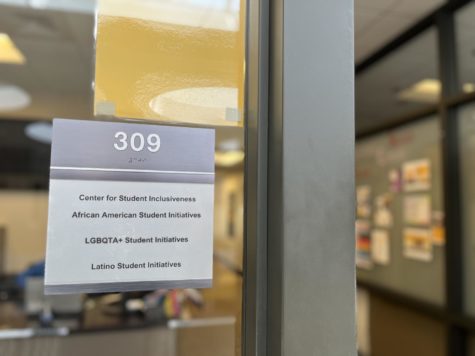As the University of Kentucky announced it will be disbanding its diversity, equity and inclusion (DEI) offices, students on Northern Kentucky University’s campus expressed concern over the decision.
UK President Eli Capilouto announced on Aug. 20 the DEI units will be separated as part of a “mission to advance this state in all that we do.” Additionally, diversity training will no longer be mandated, as Capilouto said it is “not as effective,” according to a report from the UK student news publication Kentucky Kernel.
On UK’s campus, services that were previously held in the Office for Institutional Diversity will disperse and move to offices that “support the entire institution,” Capilouto said.

NKU senior James Renton told The Northerner he thought the decision showed a lack of care for students.
“I think it’s a very ill-informed decision, and if I were a student at UK, I would be protesting it,” Renton said.
Kentucky policymakers believed that by focusing on identity, the university was stifling political discussions, Capilouto said on Tuesday. The president said the university’s values will remain the same—protecting academic freedom and promoting a sense of belonging for everyone at the institution. He also ensured that the restructuring will not result in any job losses.
Tyana Rasberry, a junior at NKU, feels that UK’s decision to eliminate DEI offices is contradictory to the values they hold.
“I think having DEI services allows for everyone to have a community,” said Rasberry. “Taking that away takes away some of our communities, and with that, it also takes away opportunities to further people’s education.”
At the start of the year, Senate Bill 6 and House Bill 9 were introduced to the Kentucky legislature. Senate Bill 6 sought to prohibit the endorsement of “discriminatory concepts” at public universities, and House Bill 9 sought to dismantle DEI services, diversity training and more.
These bills ultimately were not passed, as no vote was held before the veto period for the Senate bill. Similar legislation has passed, however, in various states around the country, including Tennessee, Florida and Texas.

Rasberry said she was shocked to hear about UK’s decision, considering the legislation did not make it through this year.
“I would have assumed that they would have kept it pushing in a positive direction,” she said.
UK notably spoke out against the anti-DEI legislation in February, with Capilouto saying in a detailed email the bills were “deeply concerning.”
Renton called out the inconsistency in the university’s past statement and current action. “It is contradictory. Honestly, it makes me question the leadership at the University of Kentucky,” Renton said.
“I am afraid it sets a precedent,” Renton said. “When these DEI bills were happening in Kentucky, the eyes of the United States were on our commonwealth and were on our universities.”
The senior said he fears that with this decision being enacted at Kentucky’s largest university, lawmakers will be able to put pressure on other institutions in the coming year to make a similar decision.
Rasberry said she felt UK’s decision was not student-based, and she hopes NKU will not follow in its path. Renton echoed this sentiment and said he would like to see reaffirmation of support from NKU.
In a statement provided to The Northerner on Aug. 22, President Cady Short-Thompson said, “At our core, we are dedicated to fostering an environment that values each person and maximizes learning. We also know that our current array of wrap-around services and programs have helped our students to thrive and we’re committed to continuing them. At NKU, we celebrate differing viewpoints and perspectives, knowing that diversity of thought and lived experiences enrich our campus community and prepare our students for success here and in the workforce.”
Both Renton and Rasberry encouraged students to register and exercise their right to vote, saying this was the best way to see change.




